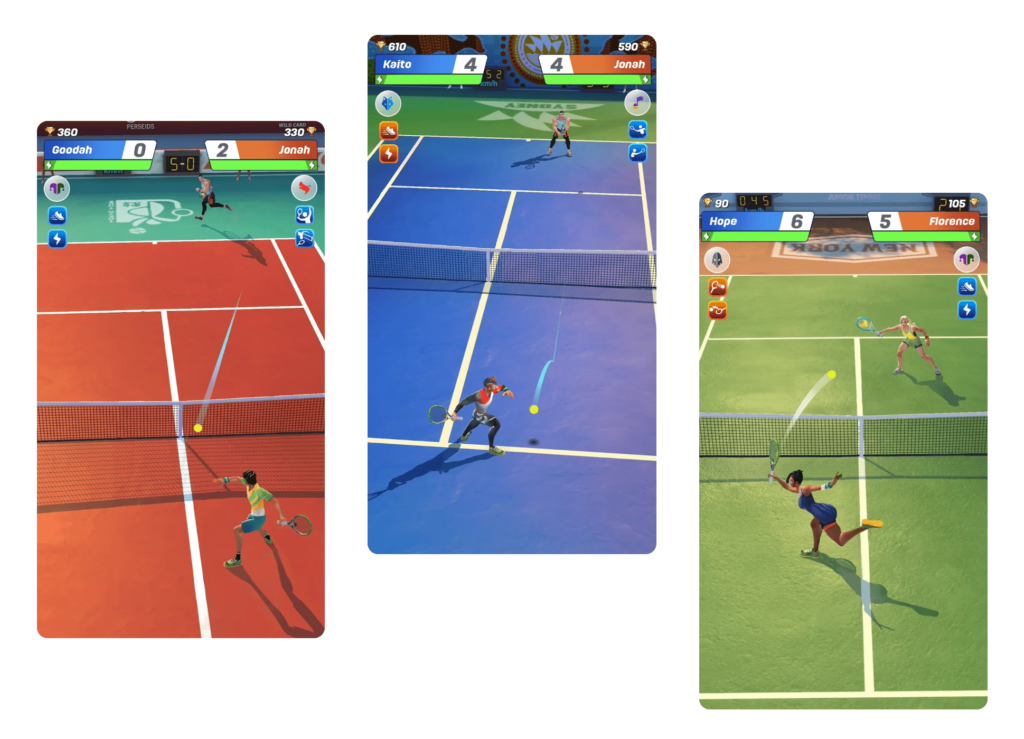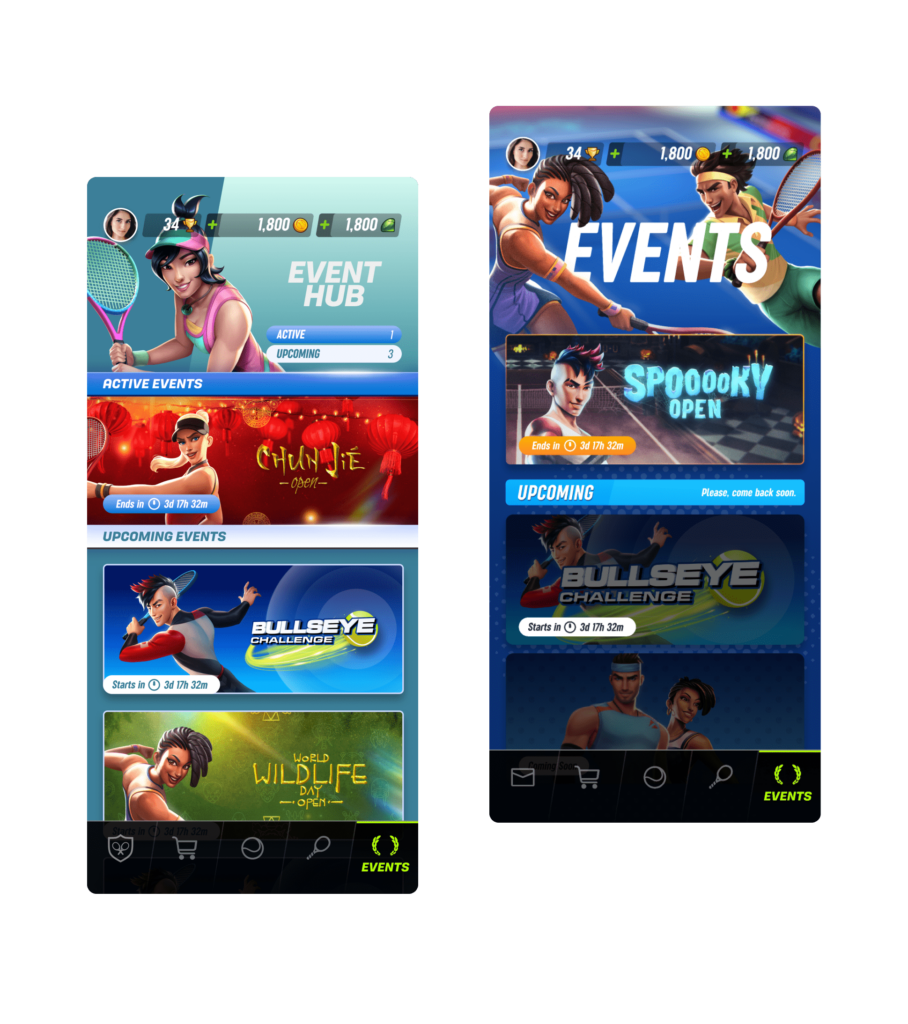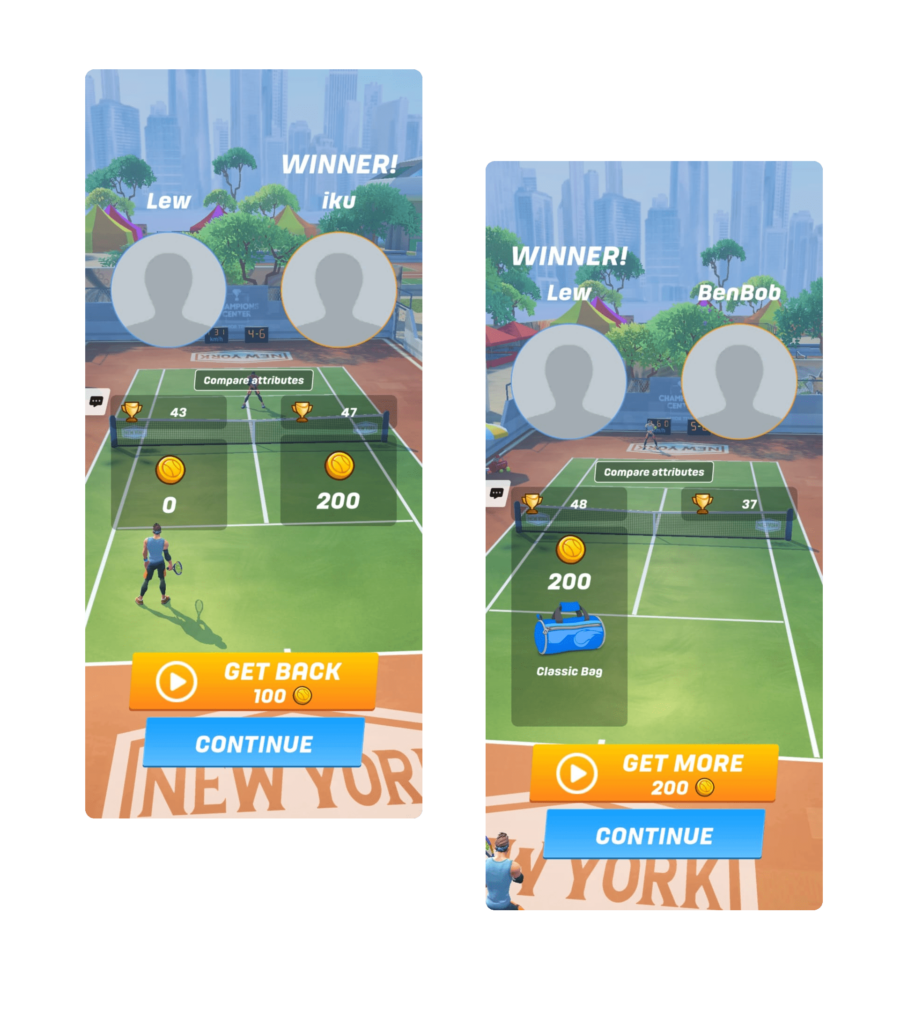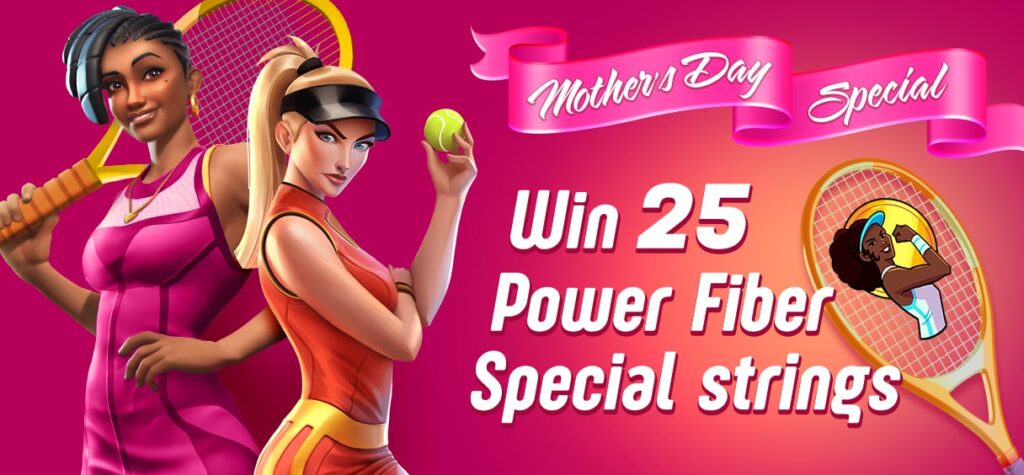· 7 min read
How Tennis Clash scored a golden set

Sarah Impey
Content Creator at GameAnalytics
In tennis, a golden set is where you win a set without losing a single point. And that’s exactly what Wildlife Studios managed to do with Tennis Clash. It was the most downloaded mobile games in 78 countries when it launched. It’s got an average rating of 4.5 out of 5 on the app stores. And it’s had over 50 million downloads on Google Play alone.
So let’s look at exactly what we can learn from Tennis Clash.
Make your game simple to play, difficult to master
We all know the rules of tennis. Tennis Clash manages to translate those rules into straightforward controls. Swipe to hit the ball, tap to move. The further you swipe, the harder you hit. And which direction you swipe in decides which direction you hit the ball. All very simple.
Just like real tennis, it becomes about tactics and split-second decisions. Where is your opponent? How hard should you hit this one? Where should you reposition yourself? Getting it right – hitting the ball just where you planned – that’s why it’s satisfying.

But how about short? In real-life tennis, you typically have games, sets and matches. Four points win a game. Six games win a set. Two sets win the match. (Usually.) That’s too long for a mobile game, so Tennis Clash simplifies the scoring system. First to hit seven points wins the match.
Tennis Clash is a great reminder to developers everywhere that you don’t need to overcomplicate your core loop. Two simple controls and a simple points system are all you need. Instead, encourage your players to master those simple controls by either getting them to compete against each other or against harder and harder bots.
Give your players a reason to revisit old content
There are two main ways that Tennis Clash encourages players to progress. The first is an RPG-like system. Players can get better gear – like rackets, string and shoes – which directly affect their character’s abilities. The better your character’s stats, the more likely they’ll succeed in doing what you wanted to do. You can upgrade your gear by spending coins. Pretty simple.
The second way is through their tours. In other games, these would be your worlds or your levels. Interestingly, unlike most games – players must bet coins on each match. The more matches you win, the harder the tours you can enter. And the more coins you have to bet upfront.

Because you can spend these coins on upgrading your gear, this creates a great dilemma for their players. Can you actually afford to upgrade your gear now? What if you lose your next match? Will you be left penniless, needing to start from tour one once again?
This means that there’s a practical reason to revisit older tours. Either you’ve spent all your coins or you don’t fancy taking the risk. For other games, this can be a very useful system to have players revisit older maps and levels – adding more replayability to your game.
Use ads to mitigate losses and amplify wins
Because players must bet coins to enter a match, they’ve also created themselves an opportunity to show rewarded ads in a very natural way. If a player loses a match, they can watch an ad to recoup their lost coins. But if they win a match, they can watch an ad to double their winnings.
This makes it far more likely that players will actually want to watch these ads. There are tangible benefits, and it doesn’t feel like the ads are being forced on them.
Consider how else Tennis Clash could have added ads. They could’ve had it so that there was an ad after every match and that players earnt coins after each win. The outcome would’ve been exactly the same. But by framing it as a bet – and only allowing players to get a rewarded ad a certain number of times a day – they reframe the context. Players are actually relieved to see an ad, rather than getting frustrated.

If you’re finding that players are getting frustrated by your ads, it’s worth asking yourself whether you can reframe the context. Can you use them to mitigate losses and amplify wins?
Partner regularly to keep your game current
Tennis Clash has regularly been in gaming news for its partnerships ever since it launched. They’ve teamed up with the Fédération Française de Tennis, the US Open, World TeamTennis, The Laver cup, WTA and ATP, and the Billie Jean King Cup.
These partnerships were simple tournaments, with the winners often getting in-game rewards and kudos on Wildlife Studio’s website. And they solidified Tennis Clash as the official tennis game. This was particularly important during the pandemic when tennis matches were being cancelled because it allowed fans to still participate in the event.
It wasn’t just tennis organizations that they’ve partnered up with. They even worked with Gucci to bring style and outfits into the game. A sponsorship that helped the Gucci brand stay current while giving Tennis Clash more content to keep their players entertained.
Regularly partnering has helped to keep Tennis Clash in the spotlight. And it’s a lesson that mobile developers all over should remember. The best way to keep your players around is to keep giving them something new. But that something new doesn’t need to be too complicated. A simple tournament, sponsored by a brand they love and respect, can hit that sweet spot.
Play to your demographics
Wildlife Studio regularly updates Tennis Clash with seasonal content. Valentine’s Day, Christmas, April Fool’s Day, Mother’s Day, Lunar New Year. Most of these are – like their partnerships – open tournaments that players must buy tickets to enter. Another useful revenue stream.
But they also make sure to think about their players. Two notable events were their Tax Day event and their Celebrate Diversity event. Clearly, Wildlife Studio had spotted that their demographic was young, entrepreneurial and liberal. And that inspired them to create these events.

Of course, this is only speculation. But a Tax Day event is an extremely specific event to host. One that they must have been sure would be successful. Otherwise, why would they have spent the time creating it?
It’s a lesson all developers should learn. What other interests do you players have? How old are they? What level of education do they have? For example, if you discover that most of your players enjoy reading, perhaps you host a World Book Day event. Are you getting a lot of Scottish players? Maybe you celebrate Robert Burns’ birthday.
The more you can tailor your events and updates to your specific audience, the more they’ll feel a cultural connection with your game.
Use analytics to discover what makes your players tick
Information is power. The more you know, the more you can improve and iterate on your game. So if you’d learn about what works and what doesn’t, try out our free analytics tool.